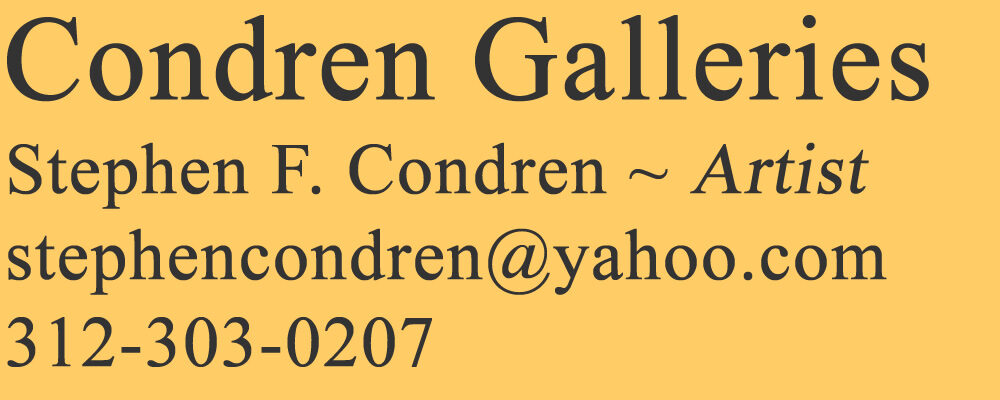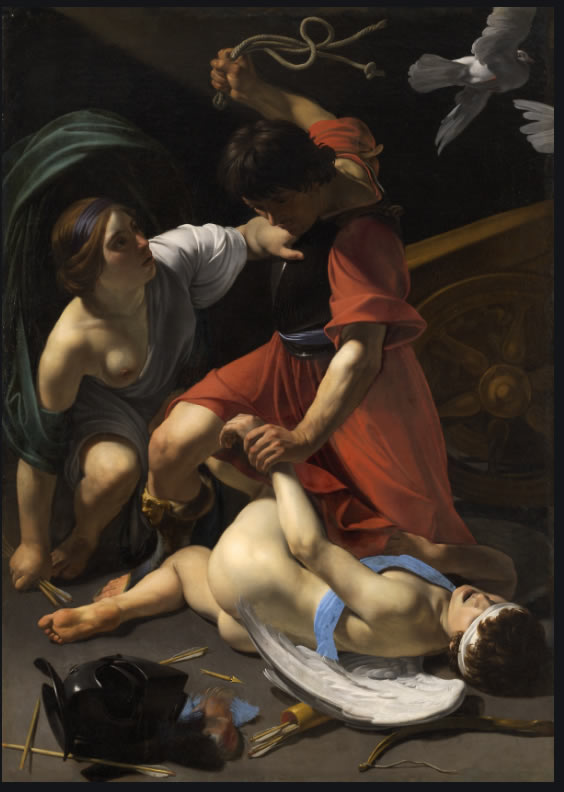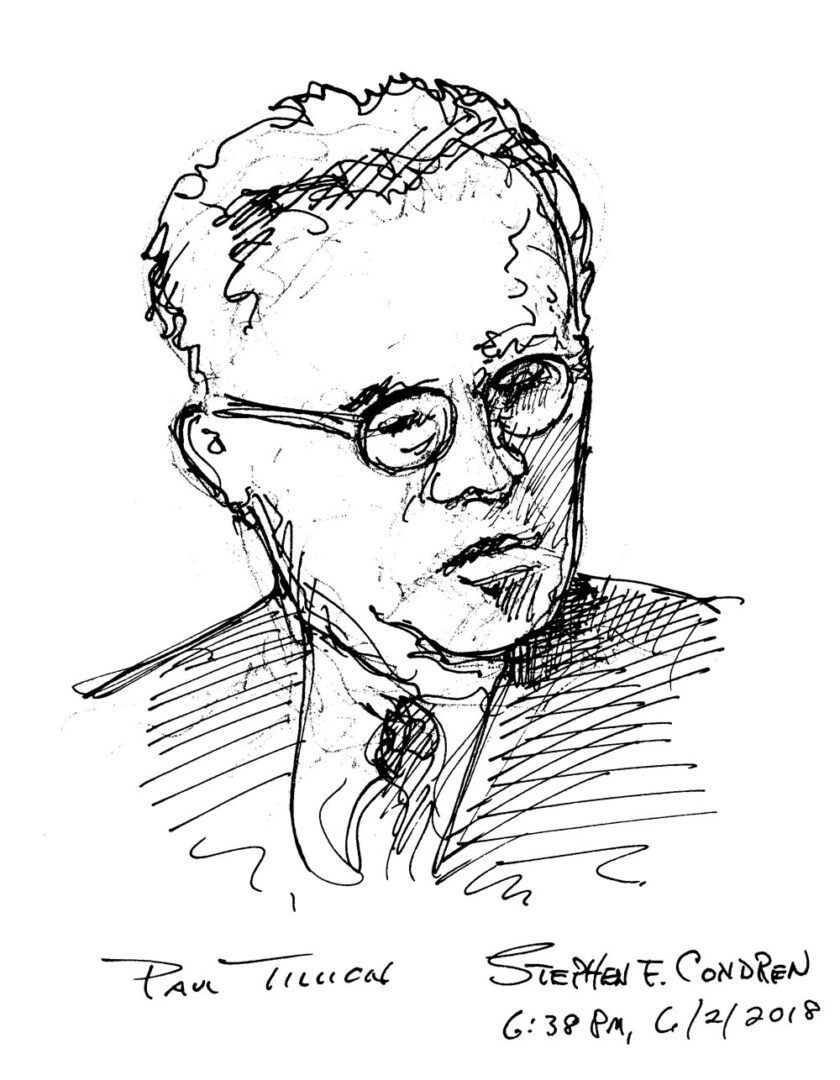
Paul Tillich #127Z, Theologian, Systematic Theology, and Ultimate Concern, by artist Stephen F. Condren, BFA-SAIC, of Condren Galleries. Prints & Scans Of This Drawing #127Z ~ Order Here.
Ultimate Concern
In Paul Tillich’s tome, The Systematic Theology, he has set out a vast canvas and has taken on the task of a Michelangelo, by of painting it with a stupendous masterpiece. The Theological concept of the Ultimate Concern, is the focus of my task. I will tackle this great work piece by piece rather than write a long and laborious series of articles on it. It is best to be pithy. The text that I shall refer to is The Systematic Theology, University of Chicago Press, 1967, ISBN 0-226-80336-8.
Interpretation
My focus for this article is his concept of the ultimate concern. My interpretation is that of an Artist, and Humanist.
Page 12:
“Every theologian is committed and alienated; he is always in faith and doubt; he is inside and outside the theological circle. Sometimes the one side prevails, sometime the other; and he is never certain which side really prevails. Therefore, one criterion alone can be applied: a person can be a theologian as long as he acknowledges the content of the theological circle as his ultimate concern. Whether this is true does not depend on his intellectual or moral or emotional state; it does not depend on the intensity and certitude of faith; it does not depend on the power of regeneration or the grade of sanctification. Rather it depends on his being ultimately concerned with the Christian message even if he is sometimes inclined to attack and to reject it.” Page 10.
I see two items of most importance, 1. The content of the Theological circle, 2. Reception of the Christian message.
Context is everything, and the most crucial element here is the material being used in the Theological circle. On top of that, the issue of the reception of the Christian message is addressed. I cannot hold to Dr. Tillich’s “attack and reject” wording for all Theology is theoretically and not iron clad. When you take on the garb of the Theologian you incorporate this doubt or alienation from the start. The proper use of Theology is employ it as a tool to help you understand better issues outside of yourself, otherwise you are wasting your time. Above all, no matter what the material nature of the Theological circle, the Christian message is that of salvation, and not a code of ethics, and moral guidelines.
Page 11:
“Today orthodox and pietist theologians are allied against the assumedly unbelieving critical theologians, while the heritage of orthodox objectivism has been taken over by the program (not the achievement) of empirical theology. In view of this age-old struggle it must be restated that the theologian belongs inside the theological circle but that the criterion whether or not he is in it is the acceptance of the Christian message as his ultimate concern.”
Acceptance of the Christian message is paramount, however, it is how the message is to be interpreted and made manifest to the Church. The mere mention of “empirical theology” opens a vast can of worms, for without doubt, we could not have made the outstanding Theological advances without the Historical Critical Method. The task at hand is to work together with hand-in-hand with all Theologian, despite the wide gap in Philosophical approaches.
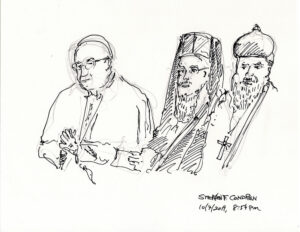
Page 11:
“We have used the term “ultimate concern” without explanation. Ultimate concern is the abstract translation of the great commandment: “The Lord, our God, the Lord is one; and you shall love the Lord your God with all your heart, and with all your soul and with all your mind, and with all your strength.” Mark 12:29. The religious concern is ultimate; it excludes all other concerns from ultimate significance; it makes them preliminary, The ultimate concern is unconditional, independent of any conditions of character, desire, or circumstance. The unconditional concern is total: no part of ourselves or of our world is excluded from it; there is no “place” to flee from it. Psalm 139. The total concern is infinite: no moment of relaxation and rest is possible in the face of a religious concern which is ultimate, unconditional, total, and infinite.”
The word “concern” points to the “existential” character of religious experience.”
I can only give hardy agreement with the lines above, for all good Theology is pervasive, and puts meaning into our every move. However, this does not mean every point by point action. Rather, it is the direction between those actions that are made manifest as the Ultimate Concern. For washing the dishes, or changing the tire on a car is not part of the Ultimate Concern, for these elements are transitional. How you wash the dishes, and why you wash them is Ultimate Concern.
This is good Theology, for Dr. Tillich is taking that with abstract and making it concrete and palpable for any Christian, of any Theological leaning.
Page 11:
“The object of theology is what concerns us ultimately. Only those propositions are theological which deal with their object in so far as it can become a matter of ultimate concern for us.” Now, to me, this is a very deep and person state of being, something that one continuously thinks and works through all of his life. But it must be clearly understood that he is talking about Theology and its task. When we grasp that, then we can then reflect its meaning to us.
The concept of the “Ultimate Concern” is not new at all, for it is very old stemming from the Bible, and the Church Fathers. Tillich’s articulation of the “Ultimate Concern is rather like the refashioning of Nothung by Siegfried, it is old yet now anew.
Theology
Page 12:
“Theology cannot and should not give judgments about the aesthetic value of an artist creation, about the scientific value of a physical theory or a historical conjecture, about the best methods of medical healing or social reconstruction, about the solution of political or international conflicts. The theologian as theologian is no expert in any matters of preliminary concern.”
In other words, Theology’s task is to keep to the topic of God and our relation to God via Theological paths filled with gauntlets of spiritual, psychological, and aesthetic biases along the way. However, one thing seem clear and that the “Ultimate Concern” deals directly with us and God and the paths between are many and complex. A clear and cogent example would be to compare God to the Superintendent of Schools and we mere mortals are somewhere in the classroom. My point here is that the Superintendent is omniscient and has to be so as to get his task done. Certainly he knows the lesson plans in the classroom after all he is a school teacher! But, the task is larger than the classroom or even the school, so too is out world and our lives.
Rational Character
Page 53:
“The question of the source, the medium, and the norm of systematic theology are related to its concrete-historical foundation. But systematic theology is not a historical discipline (as Schleiermacher wrongly asserted); it is a constructive task. It does not tell us what people have thought the Christian message to be in the past; rather it tries to gives us an interpretation of the Christian message which is relevant to the present situation. This raises the question, “To what extant does systematic theology have a rational character?” Certainly reason must be used to constructively in building a theological system. Nevertheless, there have been and still are many doubts and controversies concerning the role of reason in systematic theology.”
Dr. Tillich is biting off more than he can chew in this passage, for no theology of any kind is based on a historical science. At best what you are working with are the ideas of men from ages past articulating their thoughts, however, none of their accounts are fact based by any measure. When we speak of God, it is all in the realm of the plausible and not of the actual. All of the theology of all religions from all ages past are speculations with no substantive material to support them. This does not mean that they are not true or correct, it just simply means that they are not supported by facts. Thus, theology has no relationship to the a “concrete-historical foundation”. He is very correct in stating that theology is not a historical discipline.
Social Justice
The weakness in the perspective, and it is a very good and competent perspective, is that it leaves gaps of understand and with regard to other elements of our life such as Art, Social Justice, and Politics. Tillich is wrong, our ultimate concern does deal with God and the task of the Theologian is to help each of us in our own lives see this. However, God does concern himself with Social Justice and Aesthetics which in the case of the Christian are manifest in the teachings of Christ. Thus the Theologian can and should address “the solution of political or international conflicts.” One cannot worship God in a blur, we are beings with a mental, physical, and spiritual nature, which can only be satisfied by a worship that incorporates all of these elements of our being.
We are not off the hook, for we are in need of solutions, now more than ever. The ultimate concern is fine in terms of the Superintendent’s office, however, at the same time the matters that are in the classroom can come straight past his office to the School Board. My point being that elements concerning Social Justice have to be dealt with in concrete, solid workable terms and not in abstract concepts that offer no solutions to the issues at hand.
See My Article: Newer Higher Religion
Mission
Clearly the mission of Jesus, John the Baptist, the Essenes, and other marginal groups were to muster up a grass-roots movement that would empower local members of the synagogues to united and stand up against Rome. All of this was of course treason, and in the end cost them with their due penalty. Since the caucus was early and smaller with John the Baptist, the real leader and organizer of the movement, Herod was able to “keep it in the classroom” and deal with the Baptist himself. However, Herod’s handling of John the Baptist only exacerbated the patriotism of the movement which made it foment and gather strength, which it did under the second-in-command, Jesus. However, due to the size and continued strength of the grass-roots movement, Herod was not able to “keep it in the classroom” as it gained attention in the principle’s office, Pontius Pilate, and the rest is history.
Deception
Homoerotic Sadomasochistic Gay Art
Septagram
- Jesus. Jesus, a real flesh and blood person, preaching to the people to emancipate Israel from the Romans, and not to found a new religion. He died on the cross, a failure, and did not rise from the dead, or the grave. Jesus is the anthropomorphic element needed to place the crown (stephanos) on.
- Christ. Christ, an ethereal Being created by the early Church with aid from Greek Philosophy and Gnosticism, promulgating salvation from death by offering eternal life by having faith in Him.
- St. Stephen. St. Stephen the catalyst that brings Jesus and Christ together as one entity being made manifest to the world, being the very essence of the crown of victory, (note all of the parallels between Jesus and St. Stephen. See my article on St. Stephen). Only St. Stephen has the power (Holy Spirit, Acts: 7,55) to bind Jesus and Christ the right hand of God) together to give to the world for all time Jesus Christ, because he is the very crown of victory, hence the name Stephen. Where the Spirit leaves the dead corps of Jesus on the cross, the crown of the living and eternal Christ enters. It is the crown (stephanos, the garland wreath of honor and victory) that gives life to Christ and secures the newer higher religion. Without the crown there is no Christ, no Christianity, no eternal life, and no new world order.
- Sacrifice. Everyone wrongly looks to the sacrificial blood of Jesus as the key to salvation, but they are all wrong. For the paschal lamb is dead and offers no life, as proved by the lifeless corps of the animal, and the futile repetition of the lame barbaric sacrifice. The paschal lamb was only a vicarious agent for the atonement, and not a vehicle offering eternal life. Forgiveness of sins has nothing to do with eternal life. There is no record of any paschal lamb rising from the dead on the altar, which should have taken place, as anticipation and precursor of the up and coming resurrection of Jesus in years to come, if this were true. There is no life in bloodshed, only death, for when you see blood you see death.
- Crucifixion. The crucifixtion was never meant to be a sacrifice for there was no altar, and it was not sacred ground, or clean in any regard, as Jewish law demands. Suited only for a filthy and unfit sacrifice, the opposite of what the Gospel editors are strenuously trying to convey. For the blood of heathen Romans, and gentiles permeated the soils, making for a parcel of utter filth. For all the pain-staking care that the editors of the Gospels took to show Jesus as pure and undefiled throughout His career, and by both Pilate and Herod at His trial, they failed to carry through with their pristine depiction of Jesus at Golgotha, because it was very real, bigger than life, and they just could not hide it, control it, or explain it away, which makes the crucifixtion all the more authentic. This was a major literary flaw for the Gospel editors because crucifixion just does not work, does not fit into the context of Jewish sacrificial law, and exposes what Jesus and John the Baptist were all about. Since the Gospel editors could not hide it they tried to make it work, but it did not. Crucifixtion was a gruesome, horrific penalty for treason, a proof of failure, a public disgrace, and a display of male nudity, (Jesus wore no loin cloth), which was an abomination to the Jews and Romans alike. It took centuries of brainwashing on the part of the Church to “make it work” but it does not. For sure the crucifixion of Jesus was most assuredly real, but this does not give credence to the resurrection, or any kind of life after death. In complete contrast the crown is bloodshed free, carnal free, and triumphant, offering honor, glory, and eternal life.
- St. Paul. St. Paul, a tool of the early Church Pauline corpus editorial committee, hence the leitmotiv of verse Acts 7:58, as the key messenger of St. Stephen’s vision, that changed the failed mission of Jesus and migrates His cause to that of Christ to make sense of it by formulating a newer and higher religion palpable to all peoples. Thus, the real, authentic, earthly house of King David was transformed into the ethereal Kingdom of God in the heavens. Now Israel would again conquer and this time win as they have God on their side, and they are legions. Christianity is the triumph of Israel.
- Trinity. There is no Trinity.
See My Article: Jesus Christ And The Bogus Atonement #430Z
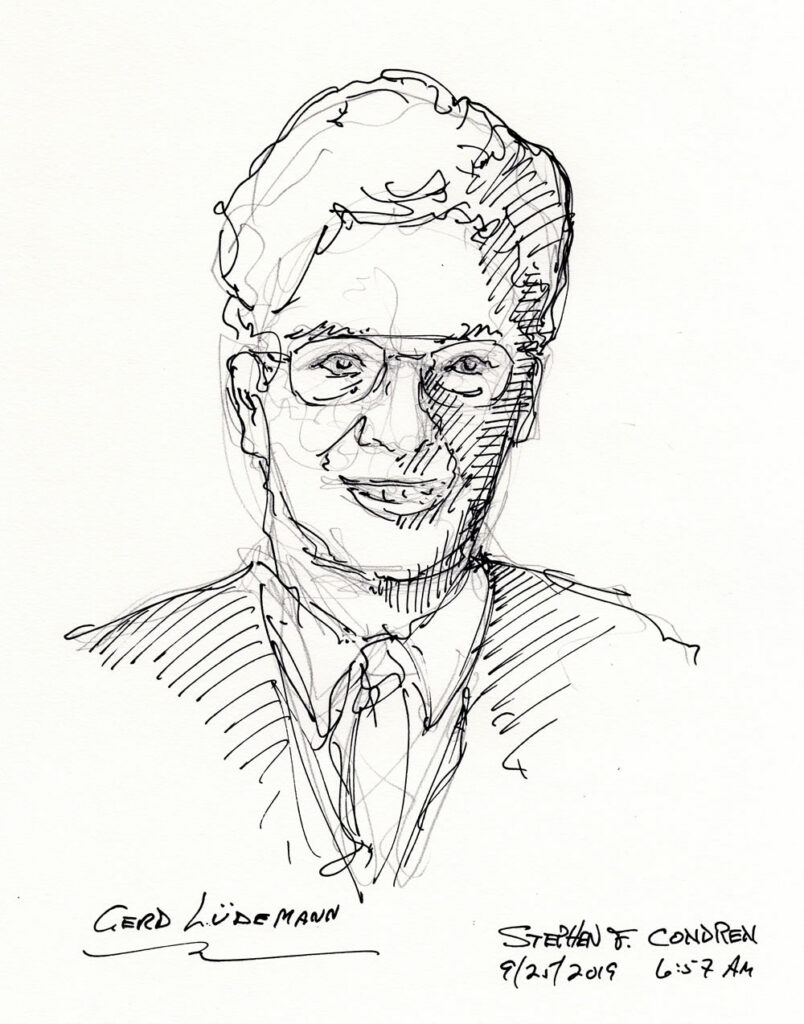
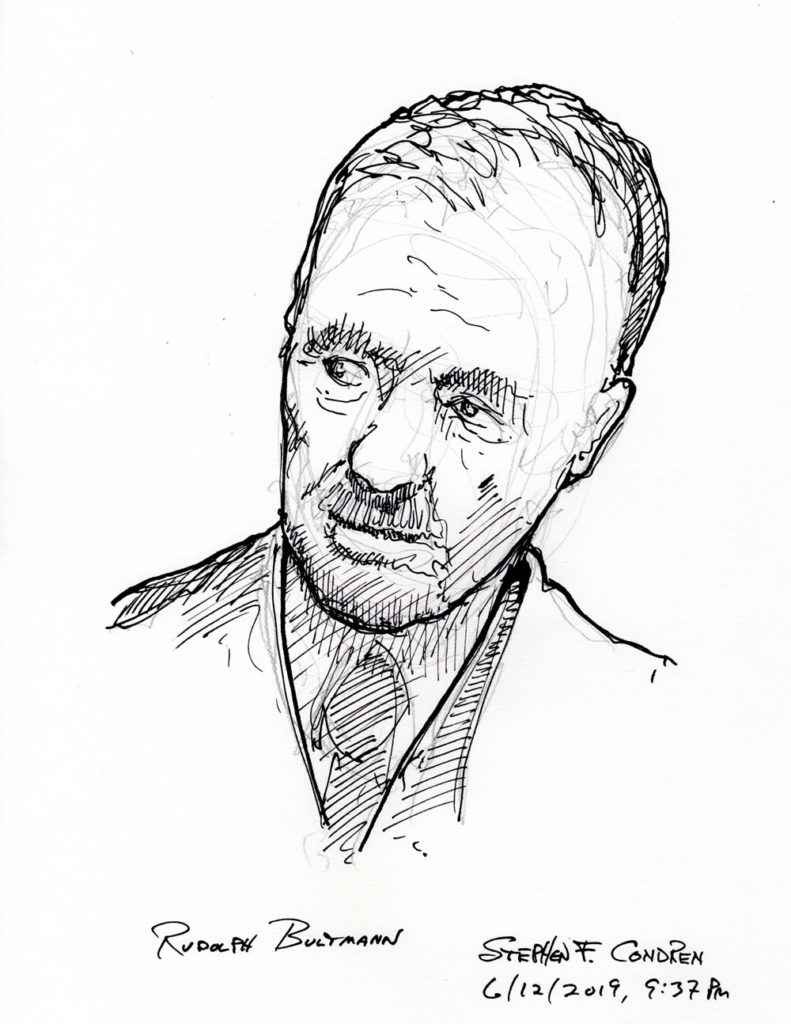
Alt Image Tag
Paul Tillich #127Z, Theologian, pen & ink drawing by artist Stephen F. Condren, of Condren Galleries.
Related Links
Zombie Of Easter Sunday #408Z
